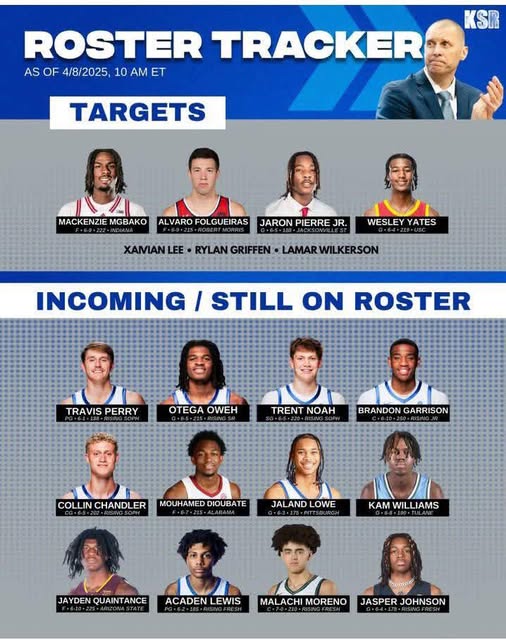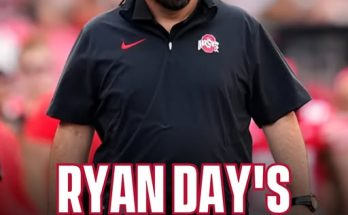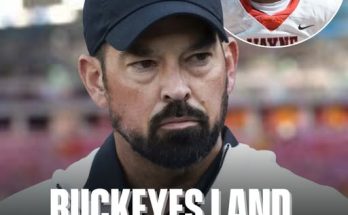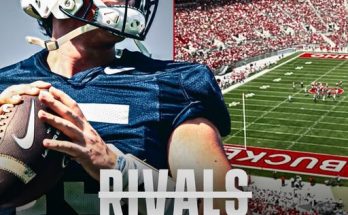When Mark Pope took the reins at Kentucky in 2024, he wasn’t just handed a historic program—he was handed the weight of expectations soaked in banners and glory. Big Blue Nation wants titles, and anything less than cutting down nets in April simply won’t do. With Kentucky’s early exit from the 2025 NCAA Tournament still fresh in fans’ minds, Pope and his staff are tasked with crafting a championship contender for the 2025–2026 season.
But building a title-winning roster isn’t just about stars and highlights—it’s about data. It’s about matchups. It’s about constructing a balanced machine capable of thriving under the brightest lights.
Let’s crunch the numbers, examine the blueprint of past champions, and figure out what Kentucky must statistically add or improve to realistically win the 2026 NCAA Championship.
I. Benchmarking Greatness: What Do Title Teams Look Like Statistically?
To know what Kentucky must add, we must first understand what winning looks like. Over the past decade, NCAA champions have shared several statistical similarities. Here are key metrics most recent national title teams excelled in:
| Statistical Category | Average Ranking for Champions (2014–2024) |
|---|---|
| Adjusted Offensive Efficiency (KenPom) | Top 10 |
| Adjusted Defensive Efficiency (KenPom) | Top 15 |
| Effective Field Goal Percentage (eFG%) | Top 30 |
| Turnover Percentage (Offense) | Top 50 |
| Offensive Rebound Percentage | Top 30 |
| Three-Point Shooting % | 35% or higher |
| Experience (KenPom metric) | Top 100 (often with older transfers) |
Last season, 2024 champion UConn finished:
- 4th in Adjusted Offense
- 7th in Adjusted Defense
- 11th in eFG%
- 20th in Turnover %
- 8th in Offensive Rebound %
- 36.2% from three
That’s the bar Kentucky must meet—or exceed.
II. How Kentucky Fared in 2024–25: Room to Grow
Let’s examine the Wildcats’ 2024–25 stats to identify the statistical deficiencies:
| Category | UK 2024–25 Stat | NCAA Rank |
|---|---|---|
| Adjusted Offensive Efficiency | 21st | |
| Adjusted Defensive Efficiency | 56th | |
| eFG% | 49.1% | 71st |
| Turnover Percentage | 17.4% | 126th |
| Offensive Rebound % | 29.8% | 96th |
| 3PT Shooting % | 33.7% | 143rd |
| KenPom Experience Rank | 299th |
The picture is clear: Kentucky was not elite on either end, struggled with turnovers, lacked rebounding dominance, and was among the least experienced teams in college basketball. That’s a recipe for early exits.
So what needs to change?
III. Building the Blueprint: What Kentucky Must Add
1. Top-15 Defense: Recruit or Portal an Elite Rim Protector and On-Ball Defender
A sub-60 defensive ranking isn’t going to cut it. Every national champion since 2014 has ranked top 15 in defensive efficiency.
Needs:
- Rim protection (block % under 7% last season)
- Elite perimeter defender (Kentucky allowed 35.9% from three, bottom 100 nationally)
Solution:
- Target a shot-blocking transfer, ideally with SEC experience
- Add a multi-positional perimeter stopper—a Davion Mitchell-type who can contain guards and wings
A defensive anchor changes everything—ask UConn with Donovan Clingan or Baylor with Mark Vital and Davion Mitchell.
2. Veteran Leadership and Experience: Portal + Player Retention
Kentucky’s 299th ranking in experience was glaring. In the one-and-done era, Pope needs to balance talented freshmen with veteran presence, especially in the backcourt.
Stat to target: KenPom Experience Rank Top 100
Needs:
- Multi-year college players who’ve played in March
- Floor generals with maturity in late-game scenarios
Solution:
- Retain key upperclassmen (if any) and mix in graduate transfers who bring poise and basketball IQ.
The 2021 Baylor team had five juniors or seniors in the starting lineup. Age matters—especially in March.
3. Better Ball Security: Add a Pure Point Guard
Kentucky averaged a turnover percentage of 17.4%, well above the national championship norm. In fact, Pope’s offense looked chaotic in late-game moments—an indicator of unstable guard play.
Stat to target: Turnover % below 15%
Needs:
- Primary ball-handler with a 2.5+ assist-to-turnover ratio
- High pick-and-roll IQ
Solution:
- Prioritize a pass-first, veteran PG in the portal
- Consider JUCO standouts or mid-major players with a track record of high assist rates and low turnover numbers
No championship team in recent memory had poor PG play—Kentucky can’t afford to run it back with inexperience here.
4. Elite Three-Point Shooting: Add Snipers
Shooting just 33.7% from deep, the Wildcats lacked the perimeter threat needed to stretch defenses. For reference, seven of the last ten champs shot above 36% from three.
Stat to target: Team 3PT% above 35%
Needs:
- 2–3 rotational players who shoot 38%+ on high volume
- Floor spacing big or wing
Solution:
- Add a transfer wing with catch-and-shoot capability
- Develop in-house talent (e.g., rising sophomores) into specialists
Spacing opens driving lanes and boosts offensive efficiency. You can’t win in 2026 without at least two reliable shooters on the floor at all times.
5. Crash the Glass: Find an Elite Rebounder
Kentucky’s offensive rebounding % (29.8%) ranked 96th, despite possessing length and size. Offensive boards are critical in March for second-chance points.
Stat to target: Offensive Rebound % above 34%
Needs:
- Physical 4 or undersized 5 with a nose for the ball
- Willing rebounders from the wing spot
Solution:
- Portal a high-motor power forward who eats rebounds (think Oscar Tshiebwe, but with lateral quickness)
- Emphasize rebounding guards in recruiting and development
Championship teams like North Carolina (2017) and UConn (2023) were monsters on the boards.
6. A Closer: One Player Who Can Get a Bucket in Crunch Time
When things break down, who’s your guy? In 2024–25, Kentucky didn’t have that go-to scorer who could take over late. Recent champions had a closer:
- Jalen Brunson (2018)
- De’Aaron Fox (2017 runner-up)
- Adama Sanogo (2023)
Stat to target: One player averaging 18+ PPG with a 115+ offensive rating
Needs:
- A proven late-clock isolation scorer
- Mental toughness and free-throw shooting under pressure
Solution:
- Identify alpha-scorer transfers or returning players with NBA potential
- Prioritize wings or combo guards with clutch gene
IV. Intangibles That Don’t Show Up in the Box Score—But Win Titles
Beyond the stats, here are less quantifiable traits Pope must prioritize:
1. Chemistry
UConn’s 2023 and 2024 title runs were built on unselfish ball movement and role acceptance. A roster full of high-usage guys with overlapping skill sets won’t work.
2. Coaching Continuity
Mark Pope must establish defensive schemes that create identity. His staff must recruit not just talent, but fit. Assistant coaching stability helps players grow into roles over time.
3. Culture
Kentucky needs to reclaim its swagger. Calipari’s last few years lost some of the killer instinct. Pope must revive the relentless edge that defined championship Kentucky basketball under Pitino, Tubby, and early Calipari.
V. Transfer Portal Shopping List: The Ideal Additions
Here’s a sample wishlist for Pope to meet championship metrics:
| Position | Ideal Profile |
|---|---|
| PG | 6’1–6’3 pass-first grad transfer, low TO%, clutch |
| SG | Sharpshooter wing, 38%+ from three |
| SF | Two-way player, long defender, multi-positional |
| PF | Rebounding monster, high motor, offensive putbacks |
| C | Shot blocker, rim protector, defensive anchor |
Kentucky’s talent will always be above average. But championship composition requires balance, role definition, and experience.
VI. Prediction: Can Kentucky Pull It Off?
If Pope nails the portal, retains a couple core players, and constructs a top-10 offense with top-15 defense, Kentucky will be a serious threat.
They don’t need five NBA Draft picks—they need five guys who know how to win together.



